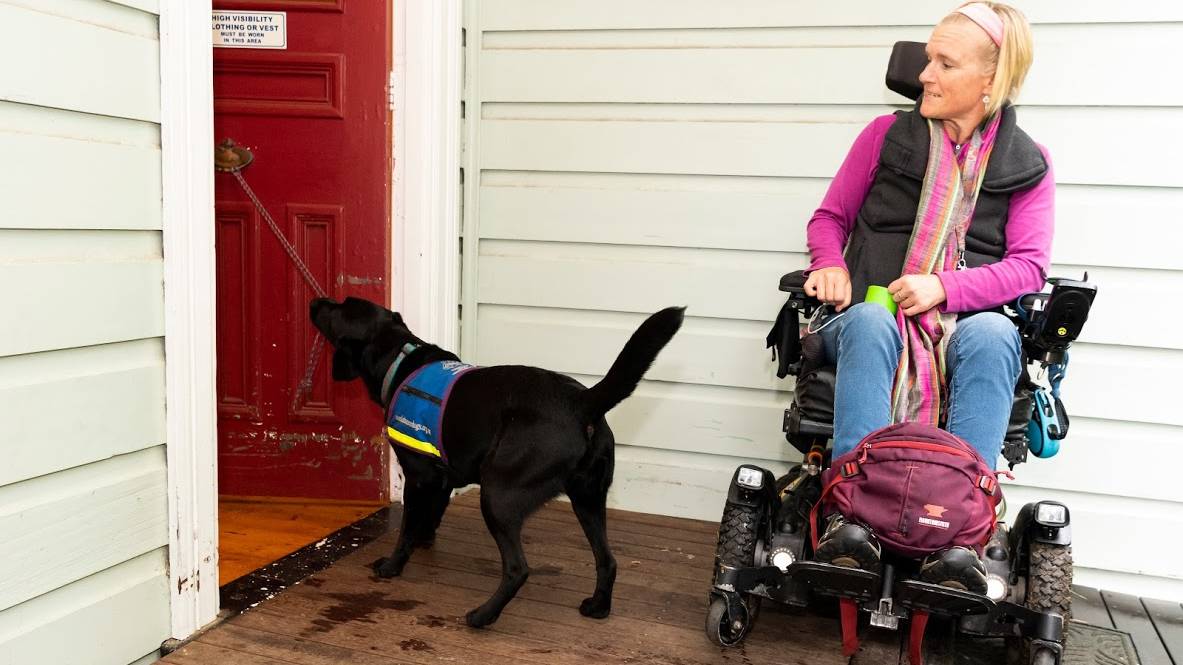You could not get any better example of how dogs are our best friends than an assistance dog.
According to the top dog at Assistance Dogs Australia, Richard Lord, when someone receives an assistance dog it can be life-changing.
“The benefits are immediate and impactful reducing stress and isolation for individuals and families, while improving relationships and allowing people with disabilities to save much-needed money on paid care,” Richard said.
“For over 23 years, we have been training and placing very special dogs with Australians with physical disabilities such as cerebral palsy, spina bifida, multiple sclerosis, and those injured in serious accidents.
“Clients with our dogs are more likely to venture out of the house with their buddy, increasing their physical activity and often reducing reliance on medication. Physical disability dogs lower taxpayer costs to the National Disability Insurance Scheme, and help people with disabilities participate more actively in their community, stimulating the economy and helping to educate the public about their very special companion.”
This week is International Assistance Dog Week, which aims to highlight how much these dogs enhance lives.
For someone like Sarah-Jane (SJ), who became a quadraplegic after surgery for a slipped disc went wrong, her labrador Cozie turned her life around.
SJ used to be an outdoor instructor, and had a four year old son at the time of her injury. She described life after the operation as ‘dark’ until Cozie came into her life.
“I am having a good quality of life now. The turning point was two years ago, and that correlates with the time that I received my assistance dog,” SJ said.
Cozie performs a variety of tasks for SJ such as collecting laundry from the washing machine, taking SJ’s jacket off, closing drawers, and picking up dropped items.

Cozie helps SJ with a range of tasks around the home.
“One time I was out in the bush by myself here in the Blue Mountains and I dropped my phone, which is my lifeline. Cozie was there to pick it up for me instead of me having to wait potentially hours for a passer-by to help.”
Richard said Assistance Dogs Australia was been on the front line of training and placing dogs with children with autism in Australia.
“Once placed with their new assistance dog, children with autism show remarkable improvement across their social, verbal and cognitive skills, as well as the ability to learn routines and structures that aid development, communication and community interaction,” he said.
Dogs are also being trained to help returned servicemen and first responders who are living with Post Traumatic Stress Disorder. PTSD service dogs undergo a unique training placement, where they are trained to work with the very individual and specific needs of their owner, in particular detecting signals of anxiety, or their owner’s ‘trigger’.
Upon sensing their owner’s trigger, the dog is trained to perform a specific cue to help alleviate the symptoms of this trigger, for example, engaging in eye contact and body contact to comfort their owner and divert their attention.
Each dog has an investment of more than $ 35,000 and they are placed free to clients. Assistance Dogs Australia relies solely on the generosity of the Australia public, corporate and philanthropic sectors.
To learn more about ADA go to assistancedogs.org.au
